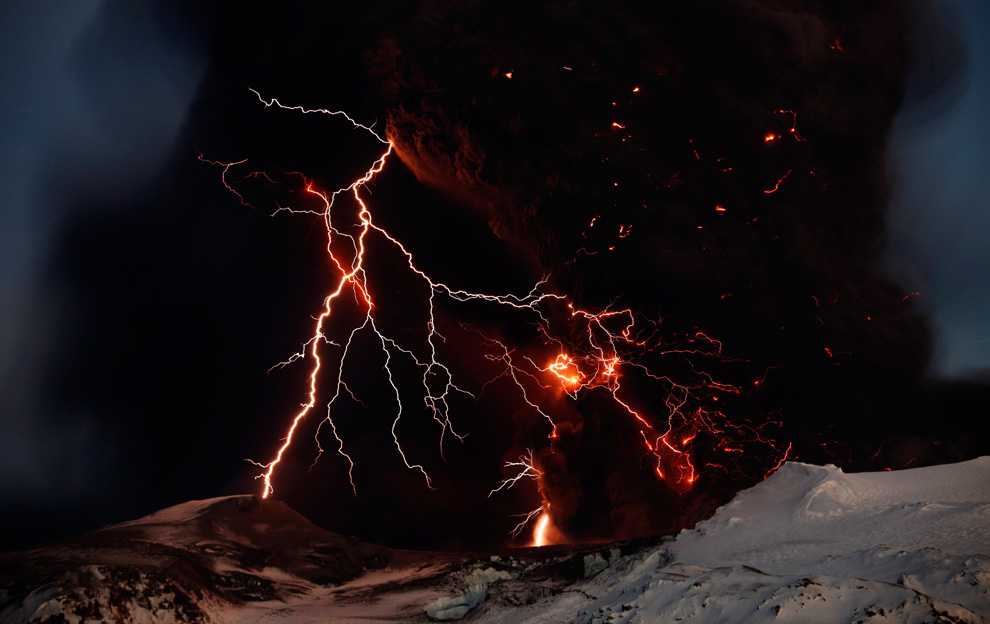April 20, 2010

 of the Brickmuppets's Crack Team of Science Babes takes the time to point out that his could be of more than passing interest.
of the Brickmuppets's Crack Team of Science Babes takes the time to point out that his could be of more than passing interest.New Scientist reports that there is a nontrivial possibility that this could be a long term problem as the last hundred or so years have seen Iceland atypically quiet. If this becomes a periodic occurrence I wonder if cruise ships might be rerouted for transatlantic duty. This would be a suboptimal solution. Cruise ships are not liners as they are fairly slow, though Cunard might soon find it even nicer to have three new vessels on hand, that, being designed partly as liners, can make 28knots.
In the longer term if Icelandic ash is periodically disrupting air travel with Europe, might we see a return to piston engined planes? As I understand it, the ash is a far greater menace to gas turbines ...it can cause issues over time with Otto and diesel cycle engines as well but that can be somewhat mitigated with better filters.
Nor is travel the only potential disruption.
The eruption of the Indonesian volcano Tambora in 1815 caused the 'year without a summer'. This is a firecracker of an eruption compared to that but it is very long lasting and seems to be spewing an awful lot of ash. I do wonder how the aggregate amounts of ash will compare to Tambora.
Tambora's affect on the weather was actually comparable to an eruption by another Icelandic volcano, Laki in 1783.
The British naturalist Gilbert White described that summer in his classic Natural History of Selborne as "an amazing and portentous one … the peculiar haze, or smokey fog, that prevailed for many weeks in this island, and in every part of Europe, and even beyond its limits, was a most extraordinary appearance, unlike anything known within the memory of man.
"The sun, at noon, looked as blank as a clouded moon, and shed a rust-coloured ferruginous light on the ground, and floors of rooms; but was particularly lurid and blood-coloured at rising and setting. At the same time the heat was so intense that butchers' meat could hardly be eaten on the day after it was killed; and the flies swarmed so in the lanes and hedges that they rendered the horses half frantic … the country people began to look with a superstitious awe, at the red, louring aspect of the sun."
Across the Atlantic, Benjamin Franklin wrote of "a constant fog over all Europe, and a great part of North America".
The disruption to weather patterns meant the ensuing winter was unusually harsh, with consequent spring flooding claiming more lives. In America the Mississippi reportedly froze at New Orleans.
Apart from indirect deaths from famine caused by odd weather, Laki also killed people directly (via Sulphur Dioxide poisoning) as far south as France.
It should be noted in passing that the last eruption of Eyjafjallajökull lasted two years.
Posted by: The Brickmuppet at
01:04 AM
| No Comments
| Add Comment
Post contains 525 words, total size 5 kb.
66 queries taking 0.307 seconds, 173 records returned.
Powered by Minx 1.1.6c-pink.









